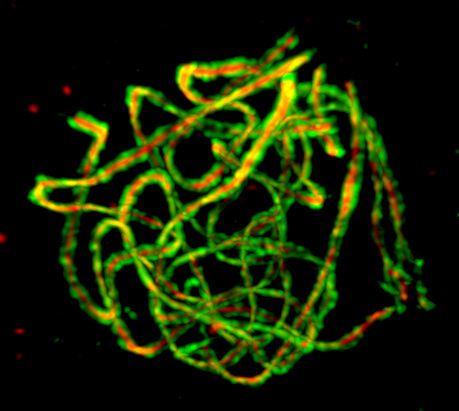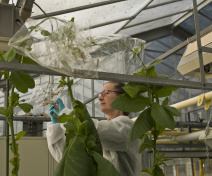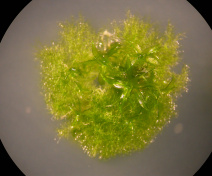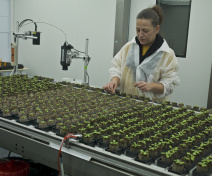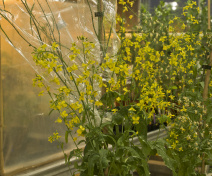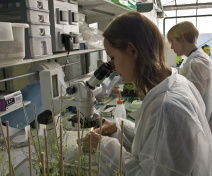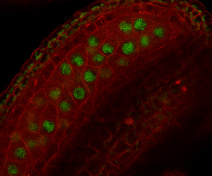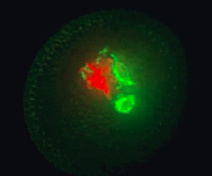The 'Genome Biology' department explores the fundamental mechanisms of maintaining stability, expression, and diversity of plant genomes and epigenomes.
Biological Question
Our research focuses on understanding how nuclear and organellar genomes function in plant cells, by describing the organization, diversity, and regulatory pathways controlling their expression and stability. Research groups in the department address biological questions regarding the molecular aspects of DNA recombination and repair, genome engineering, the genetic and epigenetic control of transposons, viruses, and transgenes, gene expression, and the genetic variation associated with stress adaptation.
Models, tools, and methods
Our teams conduct basic and applied research in plant molecular biology using genetics, cytology, protein biochemistry, genome editing as well as technologies allowing for comprehensive analysis of Next-Generation Sequencing (NGS) data. The model plants used are Arabidopsis thaliana, tomato, rapeseed, soybean, and Physcomitrium patens (moss).
Societal and economic impacts
Our research has implications for plant breeding at several scales:
> identifying new targets for stress-related breeding programs
> deciphering new ways to control the genetic and epigenetic diversity within cultivated populations
> research developed in the department also seeks to optimize genome and epigenome editing in plants, especially in crop species
Our research focuses on understanding how nuclear and organellar genomes function in plant cells, by describing the organization, diversity, and regulatory pathways controlling their expression and stability. Research groups in the department address biological questions regarding the molecular aspects of DNA recombination and repair, genome engineering, the genetic and epigenetic control of transposons, viruses, and transgenes, gene expression, and the genetic variation associated with stress adaptation.
Models, tools, and methods
Our teams conduct basic and applied research in plant molecular biology using genetics, cytology, protein biochemistry, genome editing as well as technologies allowing for comprehensive analysis of Next-Generation Sequencing (NGS) data. The model plants used are Arabidopsis thaliana, tomato, rapeseed, soybean, and Physcomitrium patens (moss).
Societal and economic impacts
Our research has implications for plant breeding at several scales:
> identifying new targets for stress-related breeding programs
> deciphering new ways to control the genetic and epigenetic diversity within cultivated populations
> research developed in the department also seeks to optimize genome and epigenome editing in plants, especially in crop species

Department head:
Rajeev Kumar
Filipe Borges
Rajeev Kumar
Filipe Borges
